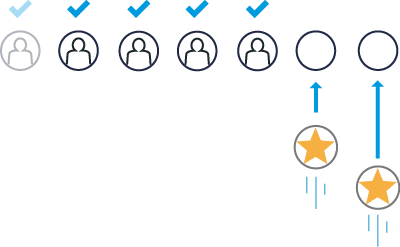
Recruiters know this better than anyone: Any candidate – anybody – can look great on paper. But not all personalities lend themselves well to all jobs. The cornerstone of an effective candidate management system is for recruiters to consider not only a candidate’s job credentials, but also how well he or she is likely to get along with coworkers, excel in a given work environment, and satisfy the job’s overall requirements. It’s essential to understand how to manage candidates.

The bottom line is that resumes can be deceptive, and candidates are more than just an impressive (or not so impressive) resume. They each have unique personalities, personal qualities, and attributes that may not be evident on a piece of paper. And while a terrible resume will generally take a candidate out of the running, an especially strong resume should also be taken with a sizable grain of salt. It is human nature to exaggerate and embellish one’s accomplishments. How many candidates who took two years of Spanish in high school claim to be “fluent”? Now imagine if you placed them in a Madrid call center – how quickly would it take for them to run away screaming…in English?
The really great recruiters know that resumes are only one element of an increasingly complex equation, which is why finding the right candidate management system is both a science and an art form.

What is Candidate Management?
Candidate management, at its core, is relationship management, which means evaluating people based on that sixth sense, that instinctive knowing that this person or that person is not just a good fit, but a perfect fit, for a position. But it is also, conversely, highly exacting – benefiting from huge quantities of constantly-updated data that can be analysed and searched to provide recruiters with a shortlist of solid contenders. There’s nothing more frustrating than losing touch with a fantastic candidate and letting the data on her decay to the point that when you do finally have an ideal req that would be perfect for her, you seek her out, thinking she’s available, and find out she’s gleefully settled into a new job.
To learn how to manage candidates, try to balance patience with due diligence, and technology with an appreciation for talent.


 Bullhorn’s marketplace of 100+ pre-integrated technology partners gives recruitment agencies the tools they need to build a unique, future-proof solution.
Bullhorn’s marketplace of 100+ pre-integrated technology partners gives recruitment agencies the tools they need to build a unique, future-proof solution.




